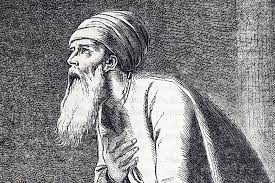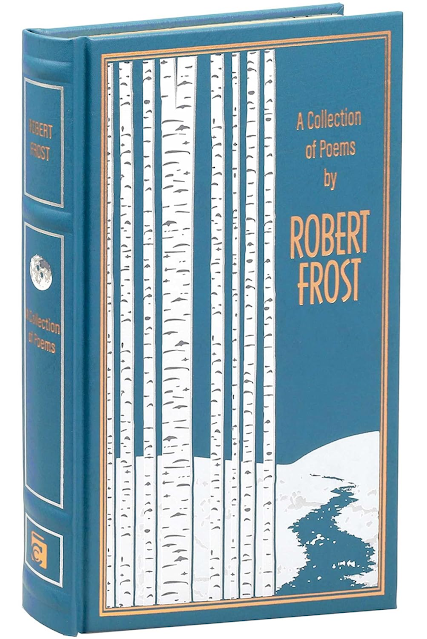| Abou Ben Adhem | |
|---|---|
| by Leigh Hunt | |
| First published in | The Amulet |
| Country | England |
| Genre(s) | Romantic Orientalism |
| Meter | Iambic pentameter (most of it) |
| Rhyme scheme | AABB CCDD |
| Publication date | 1834 |
| Lines | 18 |
"Abou Ben Adhem"[1] is a poem written in 1834[2] by the English critic, essayist and poet Leigh Hunt. It concerns a pious Middle Eastern sheikh who finds the 'love of God' to have blessed him. The poem has been praised for its non-stereotypical depiction of an Arab. Hunt claims through this poem that true worship manifests itself through the acts of love and service that one shows one's fellowmen and women. The character of 'Abou Ben Adhem' is said to have been based on the ascetic Sufi mystic Ibrahim bin Adham. The poem, due to its Middle Eastern setting and spiritualistic undertones, can be considered an example of Romantic Orientalism.[3][4] The first known appearance of this poem is in an album kept by the writer Anna Maria Hall, whose husband, Samuel Carter Hall published it in 1834, in his gift book The Amulet.[5]
Analysis
The poem shows a surprisingly liberal attitude for its time, and espouses the belief that true worship is in the service of others. The angel is said to be a representation of God's omnipresence, which observes anything and anyone.
Apart from the end rhyme scheme, Hunt uses alliteration to enrich the cadence of the poem. Some examples are:
- Abou Ben Adhem (Line 1)
- Deep dream of peace (Line 2)
- Nay, not so (Line 11)
- I pray thee then (Line 13)
The poem is written in a narrative style, and it is structured into four stanzas of 5, 5, 4 and 4 lines. Here, the stanzas are ‘closed’ and so are the couplets (the pairs of rhyming lines), — i.e., they end with punctuation. While the poem is metrically flexible, it essentially displays an iambic pentameter style.[6]
The poem draws from Arabian lore, where in the Islamic month of Nous Sha'ban, God takes the golden book of mankind and chooses those dear to Him who He will call in the coming year. Thus indirectly, this is also a poem about a ‘blessed death’. Leigh Hunt's source for this was Barthélemy d'Herbelot, Bibliothèque orientale, first published in 1697. However, while d'Herbelot has Abou-Ishak-Ben-Adhem ask God to write him down as one who loves the Lord ('écrivez-moi, je vous prie, pour l'amour d'eux, en qualité d'ami de ceux qui aiment Dieu'), the poem has him say "Write me as one, that loves his fellow men".[6][5]
Russell Jones, in the Journal of the Royal Asiatic Society, writes that the identification of Abou Ben Adham with Ibrahim ibn Adham was through two notes by H. Beveridge and V.A. Smith in the same journal in 1909 and 1910.[3]
In popular culture
The verse “Write me as one who loves his fellow men” came to be used in Hunt's epitaph,[5] unveiled by Lord Haughton in 1869 at Kensal Green in North Kensington. The musical Flahooley features a genie named Abou Ben Atom, based on either Ibrahim or Abou played in the original 1951 Broadway production by Irwin Corey.[7] It was used in the British satirical television programme Not the Nine O'Clock News, being simultaneously translated into mock Welsh by Rowan Atkinson.
The poem is mentioned as a subject for public recital by a child character in Arnold Bennett’s novel “Hilda Lessways”
In school curricula
"Abou Ben Adhem" is one of the prescribed poems in the 10th grade English Literature syllabus for the nationwide CISCE board exam in India.[8]
References
- ^ "Abou Ben Adhem by Leigh Hunt". Poetry Foundation. 2021-10-14. Retrieved 2021-10-14.
- ^ "Poetry By Heart | Abou Ben Adhem". Retrieved 2021-10-14.
- ^a b Jones, Russell (1997). "Leigh Hunt's Oriental Motifs: Abou Ben Adhem". Journal of the Royal Asiatic Society. 7 (3): 389–397. ISSN 1356-1863.
- ^ "LitCharts". LitCharts. Retrieved 2021-10-14.
- ^a b c "Bonhams : HUNT (LEIGH) Autograph manuscript of his poem 'Abou Ben Adhem', 1855". www.bonhams.com. Retrieved 2021-10-14.
- ^
- ^ "T. Rees Shapiro, "Irwin Corey, 102: Comedian Billed Himself as 'World's Foremost Authority'". Washington Post. February 8, 2017.
- ^ "Appendix I: List of Prescribed Textbooks". Indian Certificate of Secondary Education Examination, Year 2021. Retrieved 10-5-2022.
 |
| Prolific Poet, Essayist, and Journalist Leigh Hunt (1784-1859) |
In 1835 Hunt published the intensely antiwar poem Captain Sword and Captain Pen. Notable primarily for its vivid descriptions of the horrors of war, the poem consists of six descriptive sections beginning with Captain Sword and his army marching to battle, the battle, a victory ball, the battlefield at night, the loss of Sword's reason and the rise of Captain Pen, and, finally, the nonviolent combat of Pen leading to a Romantic apocalypse. The 1830s also saw the publication of one of his best-remembered poems, "The Glove and the Lions," (May 1836) first published in the New Monthly Magazine. In it, a lady, as a love test, drops her glove among lions for her lover to retrieve; he does so and throws it in her face. Perhaps Hunt's own favorite, "Abou Ben Adhem," first published in S. C. Hall's Book of Gems (1838), is a simple poem bearing the theme that to love man is the same as to love God. It also includes the line used as Hunt's epitaph: "Write me as one who loves his fellow men." In the July 1837 issue of the Monthly Repository Hunt published a kind of companion poem to The Feast of the Poets, "Blue Stocking Revels," a criticism of many contemporary women writers.
His final decade saw the publication of Hunt's Autobiography (1850), perhaps his best work and arguably the best autobiography of the century. It concentrates on the early years, using as a basis the material from Lord Byron and Some of His Contemporaries. The Autobiography is filled with portraits of the famous and the ordinary, and Hunt comes through as cheerful, optimistic, generous, and impulsive. Tolerance and lack of rancor are typical of the book, and especially notable are the mild comments where one might have expected sharper criticism, on the Prince Regent, Byron, Dickens, and old enemies. On the whole the work is vivacious, graceful, and interesting, and marked throughout by Hunt's modesty. In 1855 Hunt wrote and published one last volume, Stories in Verse, and edited selections from the works of Francis Beaumont and John Fletcher. In 1858 his second poetic drama, the comedy Lovers' Amazements, was produced. It was received warmly, reviewed handsomely, and bid fair to become popular, but, at the moment of triumph, the manager, Charles Dillon, went bankrupt, and the play and theater closed together. Hunt continued his literary activity to the end, publishing poems and essays in Dickens's journal Household Words, The Musical Times, Fraser's Magazine, and the Spectator. He died on August 28, 1859 while visiting a friend in the country.
%2000.jpg)







